Worms People Can Get

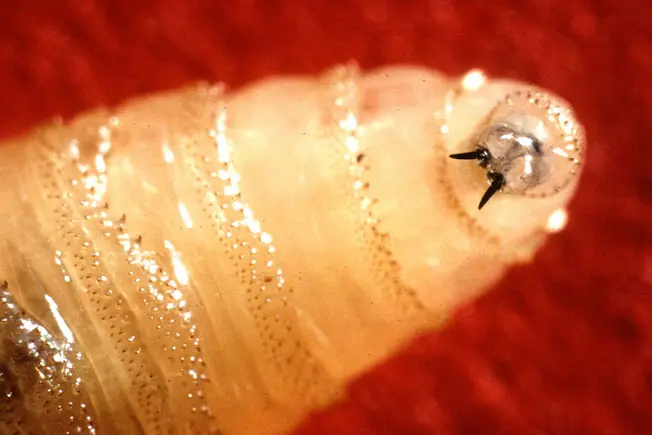
Parasitic Worms
Worms (aka helminths) are a common parasite. There are several types of worms that infect and feed on people. Some worms that people get can grow to be really big --more than 3 feet long. Others are tiny. The worst parasitic worms are usually found in warm tropical or subtropical parts of the world, but some worms are common in other places, too. Anyone can get worms.
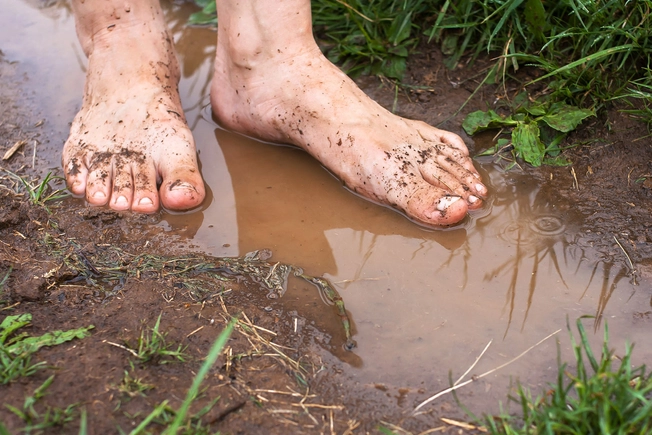
How You Get Worms
You can get worms in different ways, depending on what type they are. Many times people get worms by accidentally swallowing them or their eggs. Some worms can go through your skin when they are young and small. Sometimes you get worms when an infected insect bites you or when you eat meat from an infected animal. Worms are often passed through the pee or poop of an infected animal or person.
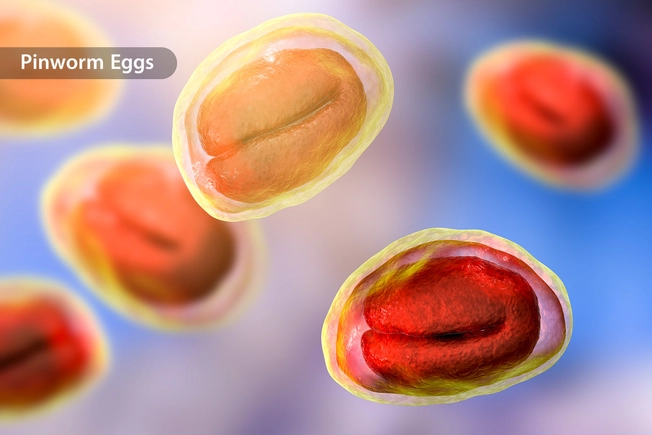
Pinworms (aka Threadworms)
Pinworms, also known as threadworms, are a common type of worm in the U.S. and around the world. They usually aren't longer than 1/2 an inch. You get them when you swallow their eggs. The eggs hatch in your intestines. At night, female pinworms exit your body and lay thousands of tiny eggs around your anus. If those eggs are passed to other people, the worms spread. Pinworm infections happen most often when kids pass them to other kids. Often there are no symptoms, but they may cause:
• Itching
• Pain
• Nausea
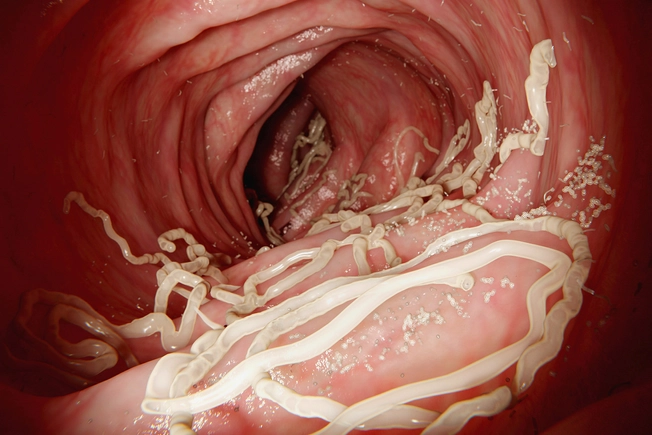
Roundworms (Ascariasis)
Roundworms are common in warm places where there’s poor sanitation. When a person swallows roundworm eggs, the worms hatch in the intestines. The young worms then go to the lungs. After a week or two, the worms go to the throat and often get swallowed again. Roundworms spread through soil mixed with infected poop or by eating raw infected meat. Symptoms include:
- Coughing
- Wheezing
- Belly pain
- Vomiting
- Diarrhea
- Fatigue
- Weight loss
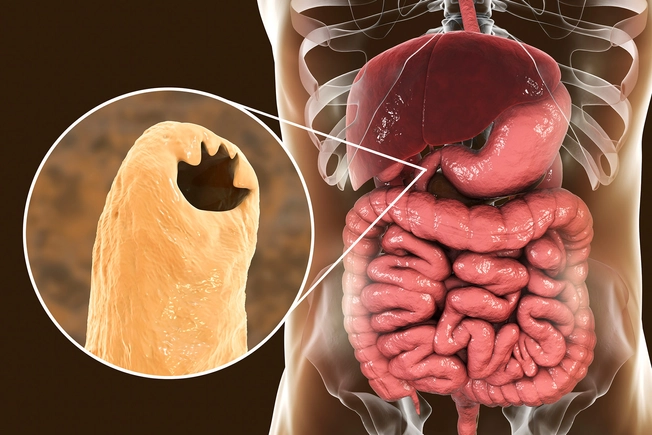
Hookworms
Hookworms also are common in the tropics. When the poop of an infected person is mixed into the soil, the eggs will hatch. At a certain stage, young hookworms can go through a person’s skin. This can happen if people go barefoot in places where the soil is contaminated. An itchy rash is usually the first sign of hookworms. Other symptoms include:
- Belly pain
- Diarrhea
- Weight loss
- Loss of appetite
- Fatigue
- Anemia
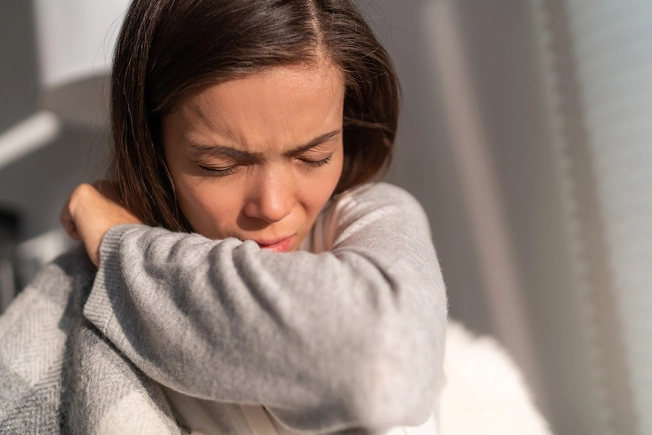
Strongyloidiasis
Another type of tiny roundworm (Strongyloides stercoralis) causes this disease. People mainly get them when young worms in soil go through their skin. Once in the body, the worms find their way to the small intestine and lay eggs. Those eggs hatch before they are pooped out and the worms may infect someone else. Often there aren’t any symptoms, but the worms can cause:
- Belly pain
- Bloating
- Heartburn
- Diarrhea
- Constipation
- Dry cough
- Skin rashes

Trichinella
Trichinella roundworms cause trichinosis. You get it by eating infected meat, especially pork, that’s raw or undercooked. When a person eats infected meat, stomach acid dissolves cysts in the meat to release worm larvae. The worms go to the intestine, grow up, mate, and lay eggs. After hatching, young worms go through the blood to the muscles. Symptoms include:
|
Muscle and joint pain
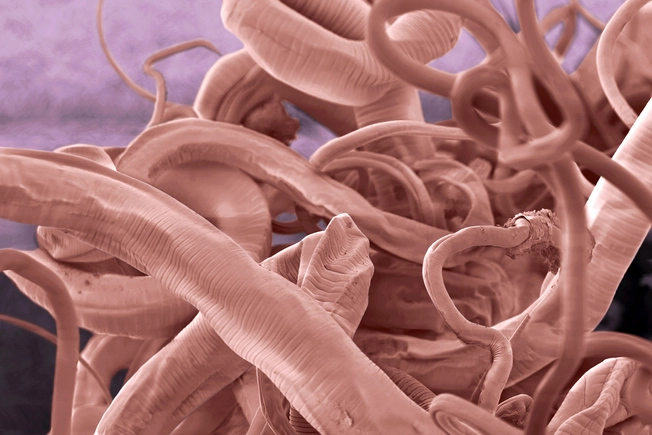
Whipworms
Whipworm (Trichuris trichiura) larvae and adults can live in your intestine. Whipworms get their name because of their shape. Like many other parasitic worms, they spread through contaminated soil in warm places. Often there aren’t symptoms unless the infection is heavy. Symptoms include:
- Diarrhea mixed with mucus, water, or blood
- Stunted growth
- Rectal prolapse, when part of the large intestine detaches and slides out of the anus
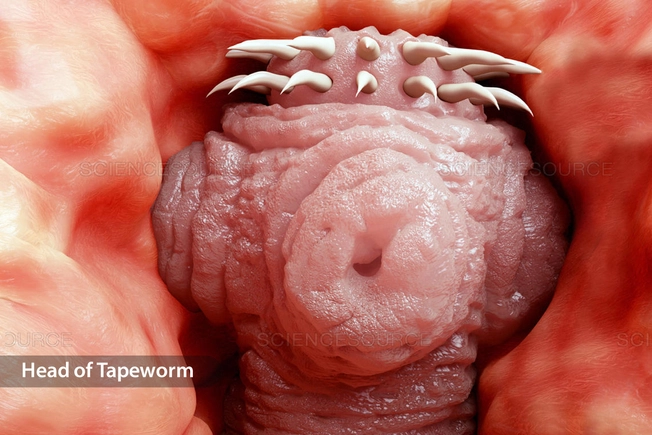
Tapeworms
You can get tapeworms from food or water that’s contaminated with worms or eggs. If you swallow tapeworms, they’ll grow up in your intestines. They can live in a person for 30 years. If you swallow the eggs, they can go through your intestines into other parts of the body to form cysts. Symptoms depend on where they are and include:
- Nausea
- Weakness
- Loss of appetite
- Belly pain
- Diarrhea
- Feeling dizzy
- Craving salt
- Weight loss
- Headaches
- Seizures

Blood Flukes (Schistosomes)
Blood flukes are flatworms that cause a condition called schistosomiasis (aka bilharzia or snail fever). People get them if they spend time in fresh water where infected snails live. The fork-shaped worms emerge from snails and can then go through a person’s skin and into the blood where they become adults. When females release eggs, it may cause:
- Belly pain
- Diarrhea
- Blood in urine
Chronic infection can cause:
- Anemia
- Stunted growth
- Organ damage
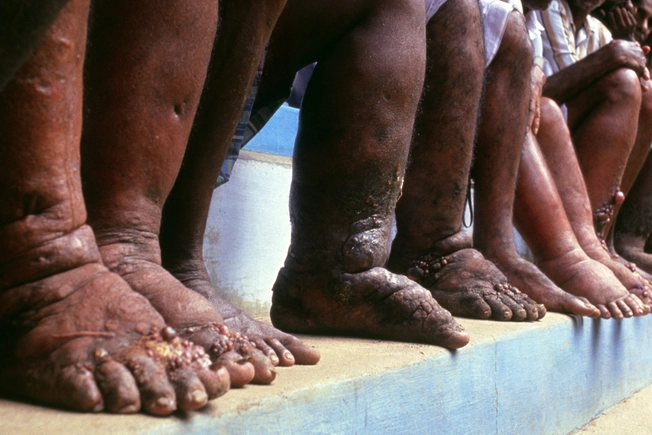
Lymphatic Filariasis
Three types of tiny, thread-like worms cause this disease. It’s common in the tropics and subtropics. Adult worms can live up to 7 years in a person’s lymph system. The disease only spreads from person to person through mosquitoes. When a mosquito bites an infected person, they can spread the tiny worms to other people they bite. It often doesn't have symptoms, but can cause:
- Damage to the lymph system
- Swelling
- Trouble fighting infections
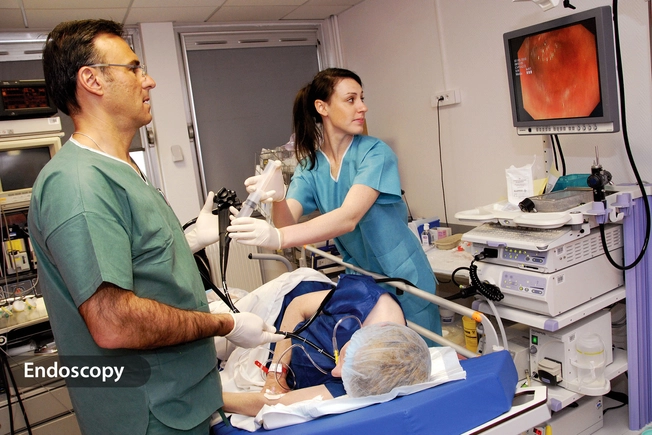
Diagnosing Worms
If a doctor suspects you have worms, they will run tests to see if you do and find out what kind they are. Those tests might include:
- Looking for signs of worms or eggs in your poop
- Inserting a tube in your mouth or rectum to look at your intestine (endoscopy or colonoscopy)
- Blood tests
- X-ray or other imaging tests
- Looking at a sample of your muscle for certain worms.

Worm Treatment
If you have worms, medicines can kill them. Sometimes you might need other treatments for symptoms related to the infection, including:
- Anti-inflammatory drugs (steroids)
- Pain relievers
- Anti-seizure medicine
If you have cysts in your muscles, you might need surgery.

Worm Prevention
Treatment for worms doesn’t keep you from getting them again. To avoid getting worms, try these tips:
- Wash often.
- Avoid soil contaminated with poop from people or animals.
- Don’t eat raw or undercooked meat.
- Treat any pets that have worms.
Be extra careful if you travel to places where worms are common.